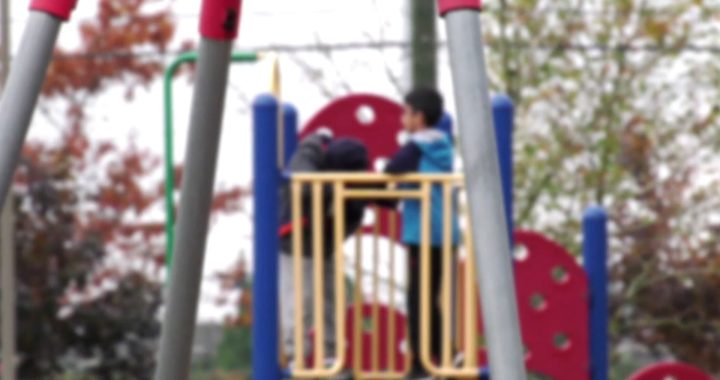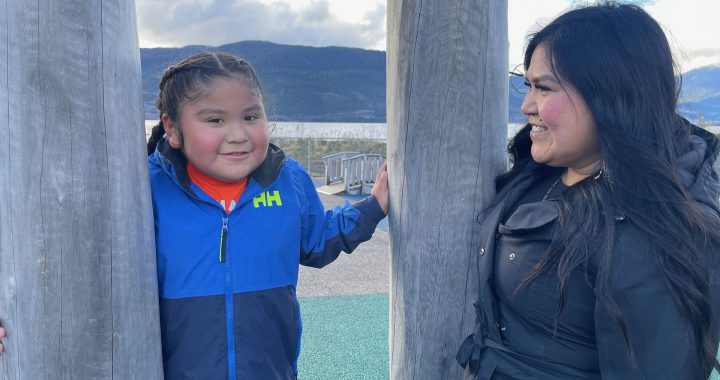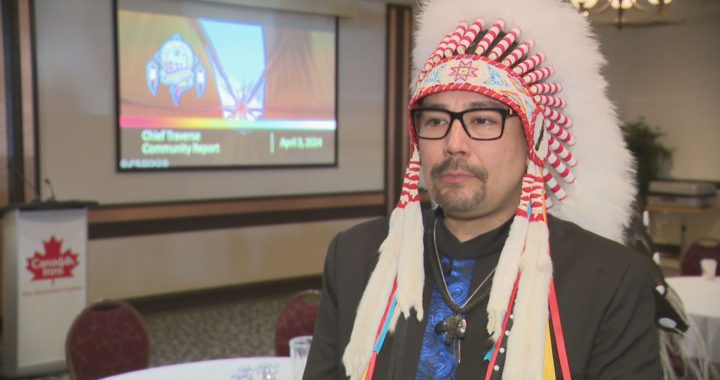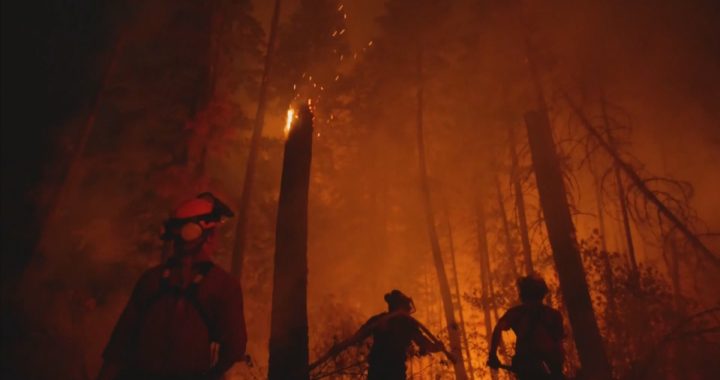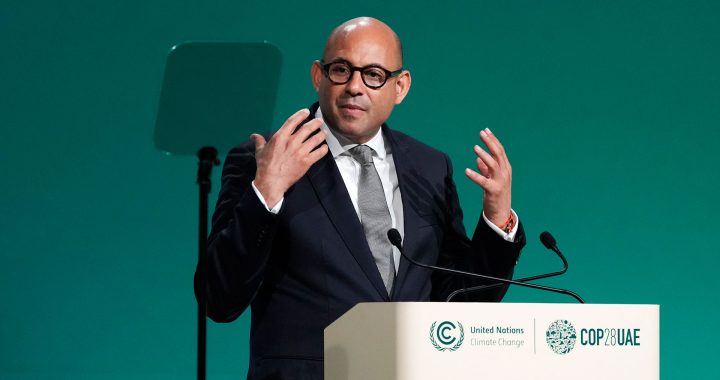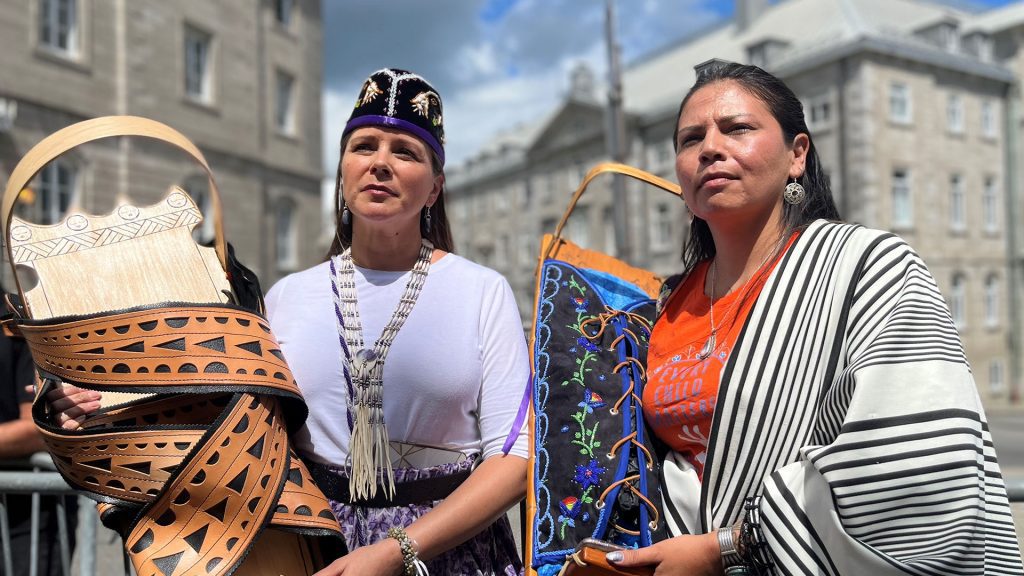
Jennelle Beauvais, left, and Michelle Schenandoah in Quebec City. Photo: Lindsay Richardson/APTN.
The Pope’s final hours in Quebec City were met with ambivalence as he met with residential survivors and supporters before flying to Iqaluit.
Michelle Schenandoah of the Oneida Nation, a representative with the Haudenosaunee delegation, said she was booted out of the Archdiocese – allegedly to make room for clergy members before she got the chance to have her promised face-to-face with Pope Francis.
“I left him this cradleboard to reflect on all the children’s lives that were lost and to think about the devastating impacts on our families,” she said. “I retrieved it the next day when he issued his apology. He did not return it to me, but the Canadian Catholic Bishops did. They told me at the time that the Pope wished to see this cradleboard when he came to Canada.
“That has not happened and the Pope has just left Quebec City.”
Schenandoah also attended a dinner between First Nations leaders and the Canadian Council of Catholic Bishops (CCCB) Thursday evening, which she said, left Indigenous attendees disappointed.
“I’ve witnessed, throughout our entire time here in Quebec City, our Indigenous leaders being pushed to the side and not having a real voice, and not being really, truly heard,” said Schenandoah.
The CCCB invited representatives from the Assembly of First Nations, and survivors, to what was originally billed as a “political dinner” in an email.
The meeting was held at 6:30 p.m. on July 28 in Quebec City.
First Nations’ key demands outlined in an email obtained by APTN News included full access to church records, reparations for the abuse committed by the Catholic Church, the repudiation of the Doctrine of Discovery, and the repatriation of First Nations traditional objects held at the Vatican.
Ghislain Picard, regional chief of the Assembly of First Nations for Quebec and Labrador, was at the dinner. He said the banquet-style dinner was not conducive to proposing their demands, and conversation with the bishops revolved mainly around residential school survivors and small talk.
“The format did not allow for the desired discussions,” he said. “I ate, but I left the meeting hungry.”
Mandy Gull-Masty, grand chief of the Cree of Eeyou Istchee, said she also felt dissatisfied.
“Unfortunately, I really feel like it was a missed opportunity to hear from leaders – to really set the clear expectations of the next steps,” said Gull-Masty.
But Jasmin Lemieux-Lefèvre, a member of the national papal visit team, attended the dinner as a liaison between the Church and Indigenous representatives.
He said the dinner was meant to be “fraternal” after a long day at Ste-Anne-De-Beaupré.
“I was sitting with two members of Quebec Native Women and a Catholic bishop and an Anglican bishop, and we learned about who they were before they became bishops,” said Lemieux-Lefèbvre.
“One was a missionary; one was a journalist. And we learned about the challenges Indigenous women face, we heard stories of racism, stories of what they face on the ground, and how the Church can become a partner [to Indigenous people in the months and years to come,”
Lemieux-Lefèbvre said the intent of the meeting was cleared up in emails, and that may have been lost among the flurry of events of the week.
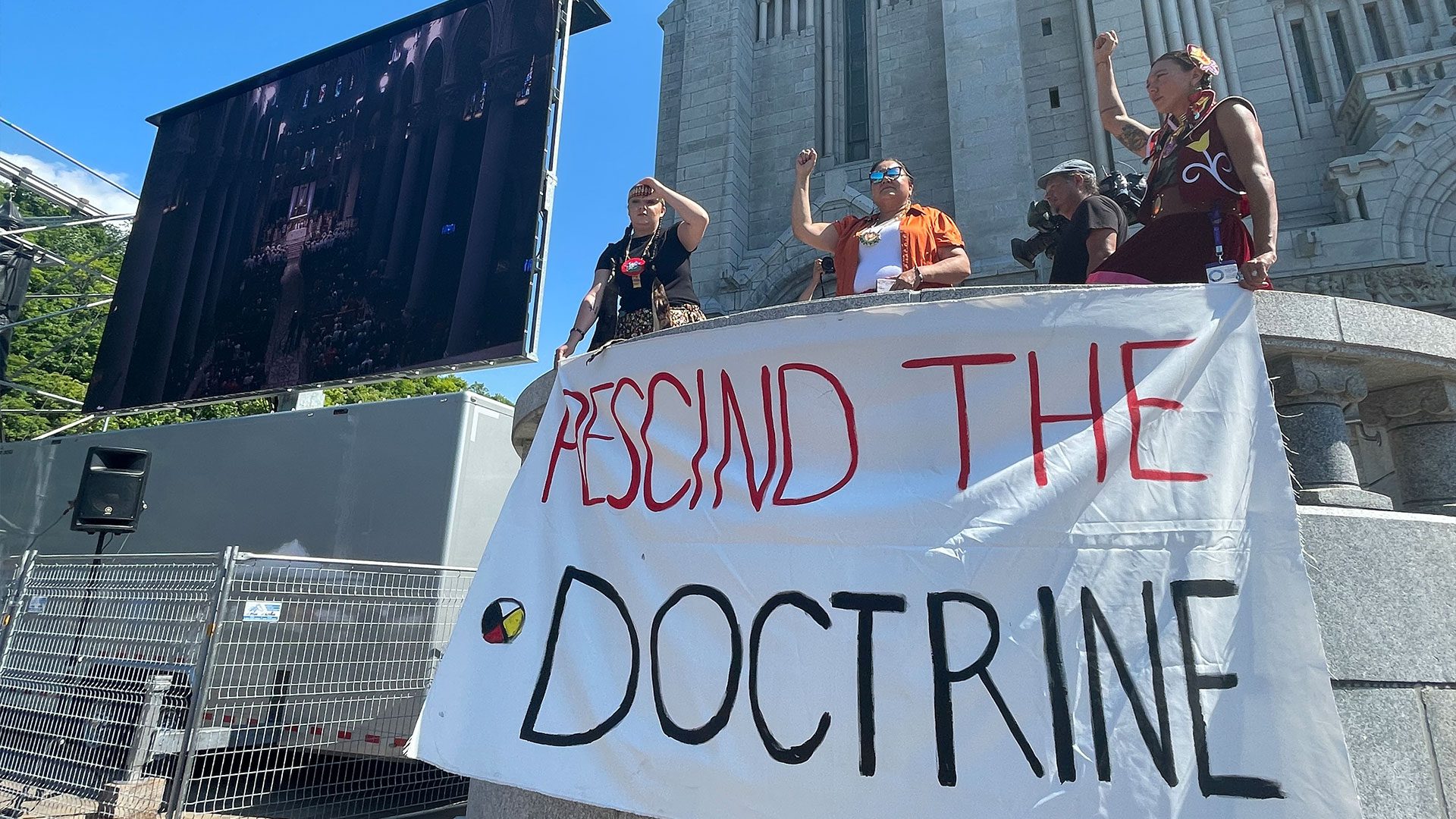
Schenandoah said she was not informed that this was the nature of the event.
“We were of the understanding it was a political event to be able to address ongoing concerns, and when we sat down with the bishops, they were very taken aback that we brought up so many issues so quickly,” said Schenandoah.
“What, they thought that it was just a casual dinner to meet and greet us?”
Picard said the conversation revolved mainly around the papal apology and survivors’ experiences, and while that was important, it failed to address meaningful actions to take afterward.
“They expect us to act fast,” said Picard.
The AFNQL put out a press release calling on the CCCB “to respond to several long-standing requests that remain unresolved, including making public all archival documents that shed light on the history of residential schools in Canada and revoking the Doctrine of Discovery.”
Lemieux-Lefèbvre assured the CCCB intends on taking action.
“This fraternal meeting is not replacing in any way the important moments that we’ll have in the coming months — we’ve received loud and clear the different topics that are important to address for the Canadian church, and the plenary assembly in September where all the bishops will be gathered will be an important moment,” he said.
Gull-Masty said she’s eagerly awaiting the CCCB’s action plan.
“I still haven’t heard anything statements from the bishops yet. That’s what I’m looking for. That’s the key place where actions can be fulfilled. It’s through working with them,” she said.
Watch Lindsay’s story on reaction from survivors on meeting the Pope here:




